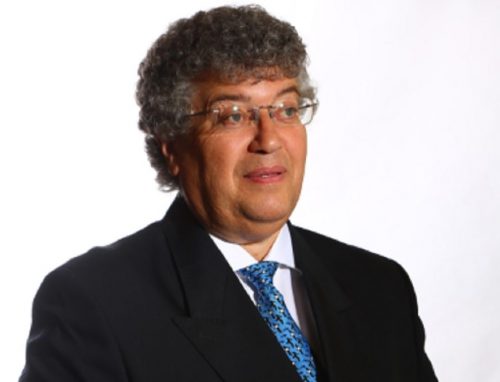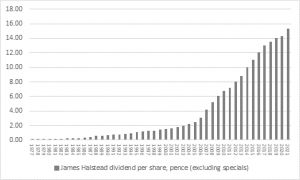Flooring specialist posts record annual results, despite pandemic challenges

Healthy stock holdings helped Bury-based floorings group, James Halstead, achieve record revenues and profits for the year to June 30.
Announcing results today, the group said it has managed to serve clients around the world, despite three major setbacks: The ravaging of one of the world’s largest production plants in Louisiana, USA, by Hurricane Ida, which affected worldwide supplies; shortage of materials linked to the closure of oil refineries as a result of the impact on the aviation sector; and issues of reduced labour supply due to COVID-19 self-isolation protocols.
Nevertheless, the group achieved an 11.6% upswing in revenues of £266.4m, and a 16.9% improvement in pre-tax profits of £51.3m.
A total dividend of 15.25p per share, up from 14.25p last year, is recommended. The group said its cash balances stand at £83.3m, compared with £67.4m a year ago, even after dividends paid in the past year that amounted to £34.1m, and taxation of £9.9m.
The board is also proposing a bonus issue of one ordinary share for every share held at the upcoming annual general meeting. It said James Halstead has a long history of such issues and these have always been in addition to dividends, not in substitution.
During the year, the group has worked on a range of projects, as diverse as ever, from Knattspyrnufélagið Fram – perhaps the largest football stadium in Iceland – to the Optimed Eye-Clinic in Belarus.
Also, many of the global projects Halstead undertook involved healthcare and COVID-19 related installations, whether in temporary hospital wards, vaccination centres, test facilities or vaccine manufacturing, but it did not fully replace its normal level of healthcare directed flooring.
One example was the flooring for a significant number of ‘campaign’ hospitals for COVID patients next to main hospitals in eight different towns/cities in Portugal. Another example was a series of mobile hospitals within the seven emirates – Abu Dhabi, Dubai, Sharjah, Umm al-Qaiwain, Fujairah, Ajman, and Ra’s al-Khaimah – where each field hospital contained 150 to 259 beds.
Chairman, Anthony Wild, said that, some three months into the new trading year, sales are on a par with the record trading of the comparative period.
He said business has bounced back beyond the group’s prior expectations, with refurbishment in some sectors buoyant, and it is to be expected that markets around the globe will further recover as more countries’ vaccination rollouts extend and they follow the European model of a return to “normality”.
He said supply shortages continue to frustrate whether they be due to the lack of availability of raw materials or to the widely publicised shortages of drivers and ongoing concerns with international freight.
The cost of moving goods, the availability of shipping space and extended delivery times are both ongoing challenges, but the group’s UK factories are in production and are tasked with raising stock levels and the business has taken on extra shop-floor labour to assist in this task.
Chief executive, Mark Halstead, said: “This was a complicated year. It was a year in which our top management had to balance risks to the business whilst maintaining key supplies to our core healthcare markets without compromising employee safety. I applaud the efforts of our management team who have faced difficulties from every direction.”
Russ Mould, investment director at Manchester-based investment platform AJ Bell, said: “The pandemic couldn’t knock flooring specialist James Halstead off its stride and now investors will be waiting to see how the Bury-based company tackles raw material shortages and rising input costs, but the latest dividend increase suggests management has every confidence it will come out on top.
“After carefully matching the interim dividend, James Halstead has increased its full-year payment by 10% to 11p a share. That represents a new all-time high and extends a growth streak in the total dividend payment that dates back to 1977.
“Management is also considering a one-for-one bonus issue of shares to investors. While this will not impact any shareholder’s actual stake in the company, or their percentage claim on its assets and cash flow, it could boost liquidity in the stock. James Halstead has a history of such bonus issues, having undertaken the same exercise in 1973, 2002, 2005, 2010 and 2013.”
He added: “The track record of dividend growth is a testament to Halstead’s solid finances. The balance sheet shows £83.3m of cash and no debt, with lease obligations of £6.2m and a pension liability of £4.4m, for a net cash position of £72.7m.
“In addition, the company remains very profitable.
“Full-year sales rose 12% (after a flat first half) came in broadly flat and operating profit rose 17%, to give an operating return on sales of 19.4% (although this meant a slight dip in the second half).

Mr Mould said: “That nearly covers £3m in lease payments, £4m in pension contributions and £34m in dividend payment for the year with room to spare. Granted, the working capital inflow may not be sustainable, the economic outlook remains uncertain, and raw material availability is an issue that will not resolve itself overnight.
“James Halstead continues to work with its suppliers, where there are, in many cases, mutually fruitful longstanding relationships, and the company is taking on both extra inventory and extra staff on the shop floor to ensure smooth running of the factories in Bury and Teesside. These measures could soak up some cash and increase costs, at least in the short term
“Nevertheless, the latest dividend hike speaks of confidence in the recovery and the company’s competitive position.
“And while a 15.25p-a-share dividend equates to an annual, historic yield of just 2.8%, a figure which might not immediately catch the eye of income-seekers, the secret to the investment case for James Halstead has been dividend growth.
“The share price was 0.29p when the dividend growth streak began in 1977, so a 15.25p payment on that in price looks truly amazing now. A consistently rising dividend will tend to drag a share price higher over time and provide the portfolio-boosting combination of income and capital growth.”




